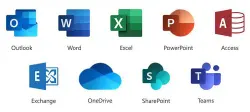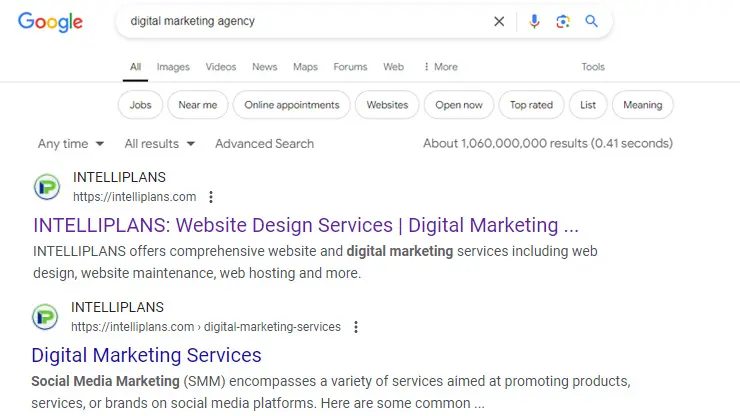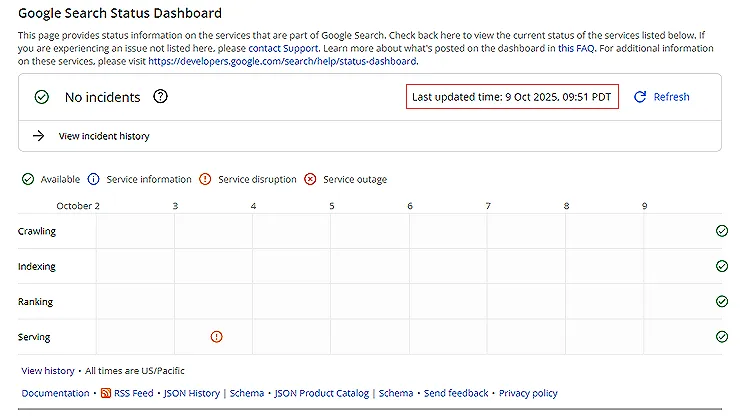A Search Engine Results Page (SERP) is the page you see after entering a query into a search engine like Google, Bing, or Yahoo. It’s the list of links, images, videos, and other pieces of content that the search engine believes best answer your query. When you search for something like “digital marketing agency,” the page that shows you local digital marketing agency listings is a SERP.
This page is designed to provide you with the most relevant and helpful content based on your search, but there’s a lot more going on behind the scenes. Let’s break down the elements and types of content you’ll encounter on a SERP, how they work, and why they’re important for both users and businesses.
Understanding How a SERP Works
When you type a word, phrase, or question into a search engine’s bar, what happens next seems simple: You get a list of results that match what you’re looking for. However, behind this is a complex process called indexing and ranking.
- Indexing: Search engines continuously crawl the web to find and organize all the content that’s available online. Every piece of content (like web pages, images, or videos) is stored in a massive index.
- Ranking: When you search for something, the search engine’s algorithm looks through its index and ranks the most relevant pieces of content according to several factors, such as keyword usage, domain authority, and user behavior.
Why Do SERPs Vary?
No two SERPs are exactly alike, even for the same search. Search engines personalize results based on things like:
- Location: Results may vary based on where you are. If you search “restaurants,” the SERP will show places near you.
- Search history: Your past searches can influence what results appear higher.
- Device: The SERP might look different on your phone versus your laptop. Mobile-optimized websites often appear higher on searches done on smartphones.
Google’s recent algorithm updates have shown that quality is more important than quantity.
Elements of a SERP
There are several key features you will typically find on a SERP. Here are the main ones that appear most frequently:
1. Organic Search Results
These are the non-paid results that search engines determine are the most relevant to your query. They typically make up the majority of a SERP. Websites earn these spots by creating quality content, optimizing their pages for search engines (a process known as SEO or Search Engine Optimization), and building a trustworthy web presence.
- Example: If you search “how to bake a cake,” the top organic result might be a blog post from a popular baking website.
2. Paid Results (Advertisements)
You’ve likely noticed some results at the top of the page that are marked as “Ad” or “Sponsored.” These are paid placements, where businesses pay the search engine to appear when people search for certain keywords. This practice is called Search Engine Marketing (SEM) or Pay-Per-Click (PPC) advertising.
- Example: If you search for “buy running shoes,” you may see ads for brands like Nike or Adidas above the organic listings.
3. Featured Snippets
Also known as “Position Zero,” a Featured Snippet appears at the very top of the SERP and provides a quick answer to your query directly on the page. This snippet could be a definition, list, or brief explanation, and it often includes a link to the source of the information.
- Example: Search “how to tie a tie,” and you might see a step-by-step list or video tutorial right at the top of the results.
4. Knowledge Panel
The Knowledge Panel is the box that appears on the right side of some search results and provides quick facts about a topic. This feature is often used for well-known public figures, companies, and places.
- Example: If you search “Albert Einstein,” you might see his photo, birthdate, and a brief biography in the Knowledge Panel.
5. Local Pack (Map Pack)
If your search is location-based, such as “pizza near me,” you’ll see a Local Pack at the top of the SERP. This typically includes a map and a list of local businesses related to your search, along with their contact information, hours, and reviews.
- Example: Search for “dentist in Chicago,” and you’ll likely see a few nearby dentists highlighted along with a map showing their locations.
6. Image or Video Results
Some queries trigger the search engine to show image or video results at the top of the page. These are especially common when you search for products, recipes, or “how-to” content.
- Example: Search “how to make lasagna,” and the SERP may include images of lasagna dishes or videos demonstrating the recipe.
7. Related Searches
At the bottom of the SERP, you might see a section for Related Searches. This suggests additional queries that are similar to the one you entered, which can help you refine or expand your search.
Why Understanding SERPs Matters for You
Whether you’re a casual internet user or a small business owner, understanding SERPs can help you navigate the web more effectively. For everyday users, recognizing the different elements of a SERP can help you get the best answers more quickly. For business owners, learning about SERPs is crucial for growing your online presence.
Here are a few ways it impacts both groups:
For Everyday Users
Find What You Need Faster: Knowing the structure of a SERP allows you to quickly identify the information you want. For instance, if you’re searching for a quick fact, the Featured Snippet or Knowledge Panel might be all you need. If you’re looking for a specific business, the Local Pack will get you there without extra clicks.
Avoid Ads if Necessary: If you’re more interested in organic results, you can quickly scroll past the paid ads to get to the information that hasn’t been influenced by advertising budgets.
For Businesses and Website Owners
SEO and Ranking: Understanding how search engines rank content is key to getting your website seen by more people. By optimizing your content to rank higher on the SERP, you can attract more visitors and potential customers.
Use Ads Effectively: While organic rankings are important, paid ads can give businesses a quick boost in visibility. Knowing how and when to use PPC advertising can make a significant impact on your web traffic.
Featured Snippets and Position Zero: Aiming to get your content into the Featured Snippet or Knowledge Panel can bring more attention to your brand and establish your site as an authority in your field.
How Search Engines Optimize SERPs for You
You might wonder how search engines manage to show you such relevant information in the blink of an eye. This is where algorithms come into play. Search engines like Google use complex algorithms to decide what content ranks the highest. These algorithms take hundreds of factors into account, including:
- Relevance: How well the content matches your search terms.
- Authority: Does the website have a good reputation? Is it a trusted source?
- User Experience: How easy is the site to use? Is it mobile-friendly? Does it load quickly?
- Freshness: Is the information up to date?
These algorithms ensure that you get the best possible answers as quickly as possible.
Tips for Navigating SERPs Like a Pro
To make the most out of your search experience, here are a few tips for navigating SERPs efficiently:
Use Specific Queries: Instead of typing “best restaurants,” try something more specific like “best Italian restaurants in New York.” This will give you more targeted and useful results.
Look Beyond the Ads: While ads can sometimes lead to good results, don’t forget to scroll down to see the organic listings. These can often be more relevant to what you’re looking for.
Leverage Featured Snippets: If you’re looking for a quick answer, keep an eye out for the Featured Snippet, which will often have the information you need without having to click through multiple websites.
As we discussed in this post, a Search Engine Results Page (SERP) is the key to finding information online. By understanding the different elements that make up a SERP—like organic results, paid ads, featured snippets, and local packs—you can improve your search skills and get the most out of every query. Whether you’re looking to find the best restaurant in town or trying to increase your website’s visibility, mastering the art of the SERP will help you succeed online.
The next time you search, take a moment to observe the different elements of the SERP and think about why certain results appear higher than others. You’ll start to see the logic behind what makes search engines work and how you can use that knowledge to your advantage!










